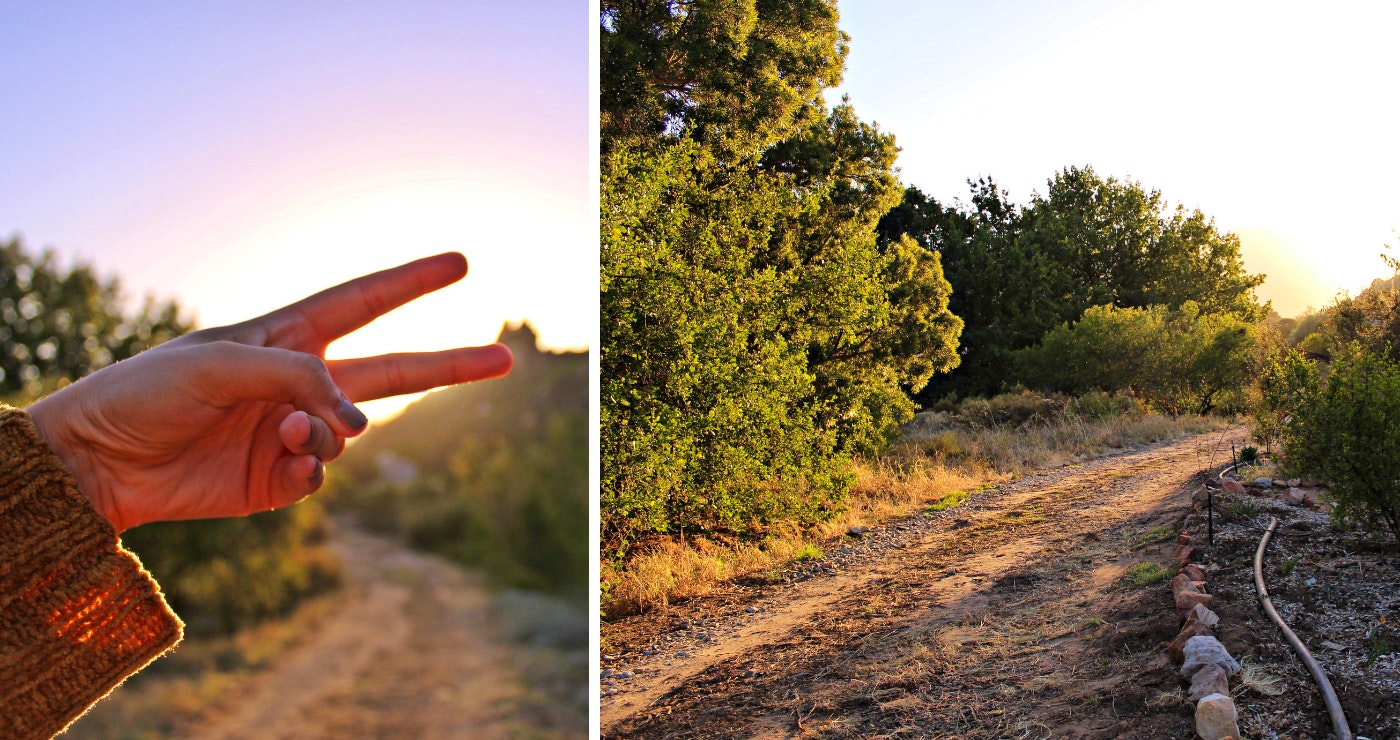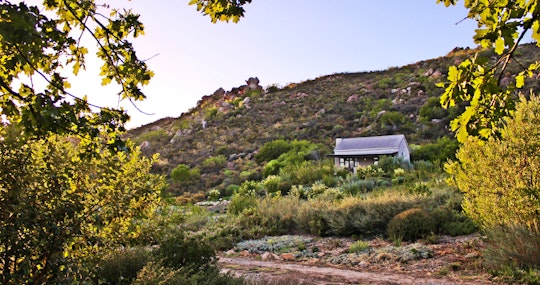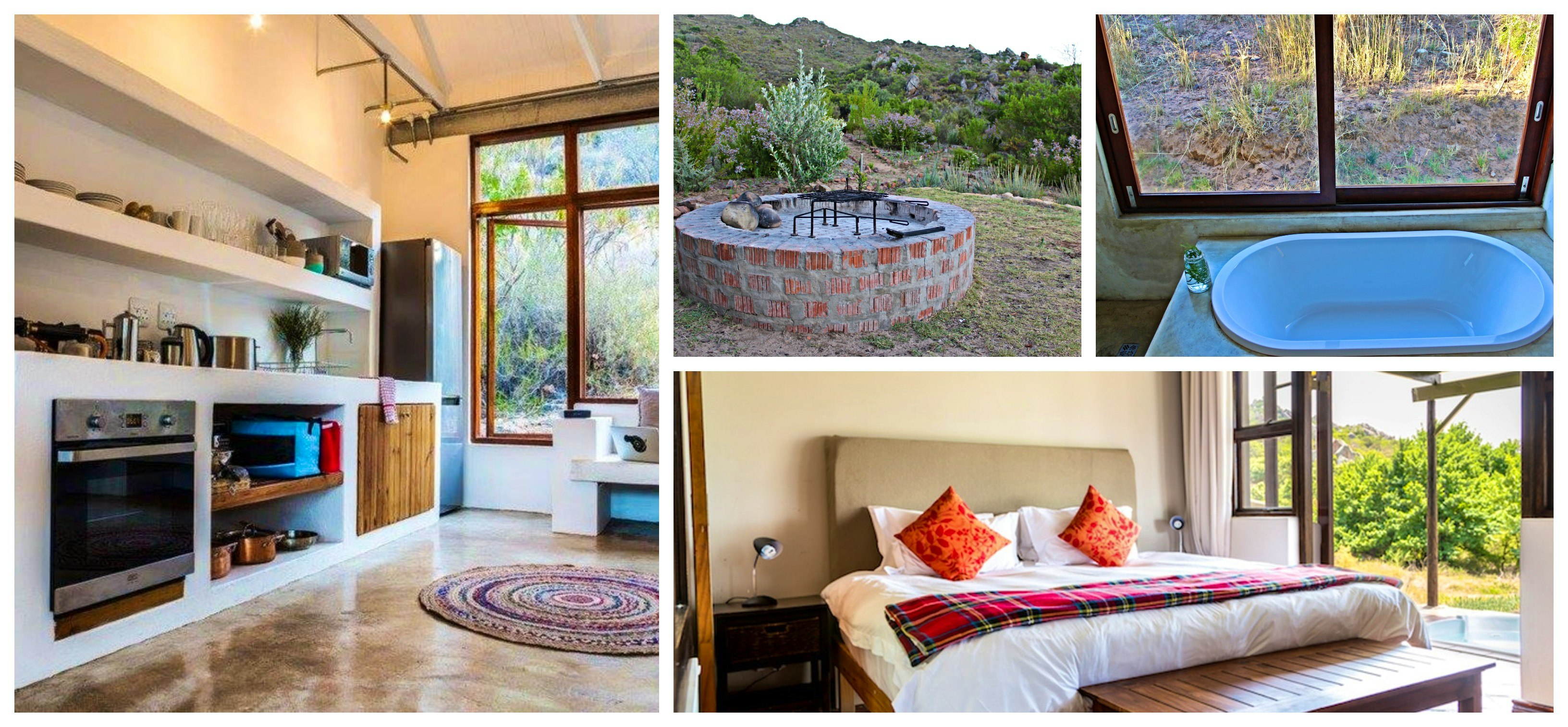Huddled in a fynbos kloof just 8 kilometers outside of Citrusdal in the Cederberg, Cederkloof Botanical Retreat worked its sweet-smelling magic on us the moment we set foot on the property. By the time we departed, I’d had my first good night’s sleep in weeks, been alone with my thoughts without becoming my usual restless self, and savoured scents and sounds I hadn’t had the sense(s) to notice in a very long time. Without even trying, Cederkloof had restored a balance I didn’t realise was missing.

As we lazed on bean bags on Chalet 4’s wide stoep, co-owner and general manager Yvette Anderson shared the story of Cederkloof with us, her dogs panting softly by her feet. TravelGround is pleased to now share this botanical resort’s remarkable story and wisdom with you too.

Endings and new beginnings
Though one wouldn’t guess it by the looks of its sprawling indigenous gardens and mass choir of birds, this property was in a sorry state before changing hands in 2014. Years of conventional wheat farming had destroyed the arable land and embankments of kikuyu laid under previous ownership had depleted all nutrients from the soil. With their habitat in danger, mobs of baboons regularly descended from the hills surrounding the resort to run amok and the property was littered with rubble from construction projects and debris from the relocation of labourers in another era.
But change was afoot. A group of environmentally-minded friends who had had their eye on the exhausted property for some time jumped at the chance to buy it on auction. Their aim was to use restorative land management practices to bring harmony back to a kloof that had so much potential.

When the going gets tough, the tough get … smarter
When the time came to turn their vision into a reality, the new owners would commute from their city jobs on weekends and work alongside staff to rip out the kikuyu, remove rubble and re-establish fynbos around the chalets. Yvette was working as a landscape architect in the city and remembers this as a time of crises upon crises. They had given themselves two months to get everything done, but in some places the hardy grass had laid down roots a metre deep and at the end of the first month they hadn’t made much of a dent, other than burning themselves and the staff out.

For all their good intentions, there was still an imbalance. They didn’t get nearly enough results given the energy they were investing and would have to work smarter.
So, the team started to collect cardboard, placed it on top of the remaining lawn and covered it with bark mulch they obtained for free from defunct saw mills in Citrusdal. The cardboard forced the kikuyu to die back from lack of sunlight and, over time, the mulch restored the necessary soil balance for planting fynbos. Finally magic was happening!

A bid for balance
In the months that followed, challenges were met with smart solutions and harmony returned to the kloof as was evident by birds that had long since disappeared from the area reappearing. With birdsong increasing, a no music rule was instituted to give guests the chance to enjoy the audible triumph.

Twenty tonnes of rubble, which was a mammoth task to move to landfills, has been cleverly employed on the farm and padded down to secure the sandy paths to date.

The great amount of roads leading to the chalets that detracted from guests privacy and peaceful atmosphere were lessened and carports screened off by flora to ensure guests would be able to switch off completely by not seeing their cars.

As insect diversity increased, lemon verbena and lavender were planted near the chalet windows to naturally deter pests.
Not feeling threatened by the ruin of their habitat anymore, baboons seldom descend from the hills anymore, and when they do, they’re less aggressive and survey the kloof with a calm, proud stare.
The cedars for which the Cederberg was named and which have sadly become extinct in the region were given a new start at Cederkloof’s cedar nursery on the mountainside and are lovingly cared for by Yvette and the staff. To celebrate this visionary venture the resort was renamed Cederkloof in 2017.

2017 was also the year in which organic rooibos was planted on the farm for the first time in a bid to restore the land ruined by unsustainable wheat farming.
With no municipal recycling in the area, Cederkloof has taken it upon themselves to reuse waste on the farm, for example building colourful walls and enclosures with glass bottles.

The more Yvette and her team started to take care of Cederkloof and work with nature instead of against it, the more the kloof has shown its miracles to her:
The staff, mostly women whose families have lived in the valley for generations, have started to regain pride in their work and confidence in their endemic plant-based knowledge systems. Now they share their expertise with Yvette freely, even harvesting from the re-established fynbos gardens for medicinal purposes as guests are welcome to do.
Hiking on the property, bushman rock art has been pointed out to Yvette and beautiful caves and rock formations have been found that only serve to further sanctify this sweet-smelling kloof and all who visit it.

A balance has been won and one can feel it on entering the retreat. It smells like fynbos baking in the sun and has the deafening chiiirrr of happy cicadas.
Looking forward
Keeping their balance is an ongoing task and so Yvette and her team are always looking for new ways to share more of their retreat with those seeking a balance:
A book containing the herbal knowledge that her staff members have shared, The Woman’s book of Herbs at Cederkloof, is a venture she excitedly mentions.
The chalets are being revamped one after another to make them a seamless part of the surrounding landscape.

The retreat’s wedding packages are expanding with each ceremony held at their venue.
Plans have been drawn up for a stilted luxury guest lodge atop the hill, next to the cedar nursery, which will look out towards the pink mountains.

With good hearts and devoted spirits, the Cederkloof team are not only restoring harmony to the retreat, but demonstrating to guests that there is a better, more balanced way of life. With the sun setting rosily on the surrounding mountains, sitting in Chalet 4’s spring water Jacuzzi with a glass of wine, we have to admit that finding our balance feels pretty good!

Would you like to find your balance too? Then stay here!
Amenities
- 10 self-catering chalets each sleeping 2 to 6 guests on king-size beds (or twin beds on request)
- En-suite bathrooms
- Spring water Jacuzzis
- Fully equipped kitchens
- Indoor fireplace
- Outdoor kuru (braai)
- Large verandas with bean bags and outdoor seating
- Air-conditioning
- DStv
- Wi-Fi in some chalets and at the main lodge
Good to know
- Children are very welcome: children under 2 years stay for free and a mattress for an older child can be provided at an extra R150.
- There is a swimming pool and a dam on site which is not covered.
- Firewood, ice and insect repellant is available on site at extra cost.
- Cederkloof offers wedding packages.
Activities
- Swimming
- Rock art
- Hiking the 5 kilometers Klein Olifants Route or strolling along the short Feetjie Route

Acknowledgements:
Thanks to the team at Cederkloof for their hospitality and the amazing work they do in restoring this remarkable place.
Feature image: Adriëtte le Roux
All photos by Adriëtte le Roux unless indicated otherwise.






